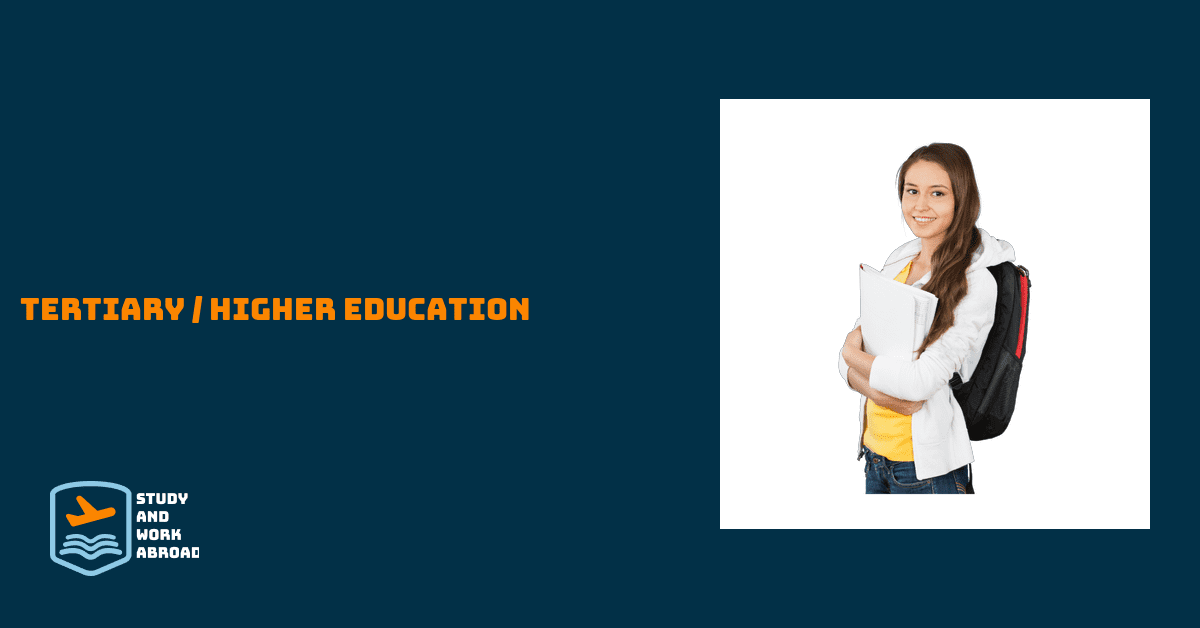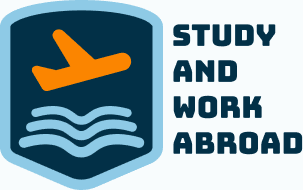Call Us:+91-9920234749 info@studyandworkabroad.in

Tertiary / Higher Education
What is Tertiary / Higher Education?
Tertiary Education or Higher Education, is also known as the third stage, third level, of education following the completion of a school providing secondary education. The World Bank, in its definition states, tertiary education as universities as well as institutions that teach specific capacities of higher learning such as colleges, technical training institutes, community colleges, nursing schools, research laboratories, centres of excellence, and distance learning centres. Higher education is taken to include undergraduate and postgraduate education. Tertiary education generally culminates in the receipt of certificates, diplomas, or academic degrees.
Tertiary or Higher education includes both the undergraduate (i.e., college) and the graduate (or postgraduate) levels. Higher education includes most professional education and is strongly vocationally or professionally oriented. Higher education differs from other forms of post-secondary (after high school) education such as vocational education. Vocational education is a form of secondary or post-secondary education but is considered non-academic as compared to higher education.
Levels of Education
| Stages | Approx. Age | Level |
| Primary | 4-10 yrs. | Elementary School |
| Secondary | 11-18 yrs. | High School |
| Tertiary * | 19-22 yrs. | College |
| Post Graduate * | 23 yrs + | Graduate School |
* Higher Education
What is the Importance of Studying Tertiary / Higher Education?
As a field of knowledge, higher education crosses the boundaries of other knowledge areas that are taught at tertiary level. The study of higher education is concerned primarily with critical inquiry into, and the reflective application of best practice in teaching and learning in the various knowledge areas. It includes research into the nature of universities and other tertiary institutions and the way in which academic work within these institutions is constructed. Higher education also encompasses the development of professional competence, leadership and management in the tertiary sector.
Study of Tertiary or Higher Education is designed to enable you to teach adults in tertiary education settings. You might be a tutor in a private training institution or a lecturer at a college or university, a community educator or workplace trainer. These programs and courses help you develop your tertiary education knowledge and skills in existing and new areas of interest and expertise.
The Study of Tertiary or Higher Education
- Enhances the effectiveness of your teaching and improve students’ learning.
- Develops your knowledge of the complexities of adult learning and teaching.
- Helps to tailor your programme to accommodate your needs, interests and circumstances.
- Makes you experience a safe and inclusive learning environment.
Tertiary / Higher Education – A Profession
Are you working in an adult learning environment, and want to improve your knowledge of educational and professional development and educational research issues? As a prospective student you may be teaching evening classes, supporting adult refugees as they learn English or be involved in training within your company/organisation. The various courses and programs such as Graduate Diploma in Higher Education helps you work with and educate adults, whether you’re a lecturer, manager or support staff. You will expand your expertise in adult teaching, as well as your understanding of educational development, learning technologies and educational research.
Highlights
- An ability to tailor the programme to the needs of your career.
- A wide range of courses, including educational development, learning technologies and aspects of educational research.
- Highly qualified teaching professionals who are supported by up-to-date technology and responsive to the learning communities they serve.
- Focus on user-friendly tools for students and tutors.
- Emphasis on self-reflection.
- Courses are a mix of block courses and interactive workshop-based sessions, self-directed learning and/or face-to-face sessions. Courses can be completed by distance learning.
The New Zealand tertiary sector covers private training establishments (PTEs), institutes of technology and polytechnics (ITPs), universities and workplace training. These all deliver a variety of educational options, often in flexible ways to meet the needs of adult learners. NZQA acts as a quality assurance body and approves all qualifications for the above institutions, apart from universities.
Tertiary education providers offer courses which range from transition (school to work) programmes, through to postgraduate study and research. There are no fixed divisions between the types of courses offered by each sort of provider. The focus is on their ability to offer education to the required quality standards, rather than based on their type.
- Higher, degree-level education is mainly offered at universities. Programmes are research-led and generally academic, as distinct from vocational.
- Vocational degree level education is offered at ITPs, and a few larger PTEs. Such degrees tend to be specific and applied.
- PTEs’ programmes are mostly in specific vocational niches at certificate and diploma level.
There are tertiary schools that are in New Zealand and governed by the New Zealand Qualifications Framework. These tertiary schools vary depending on what programs that they offer, how much they cost, and where in the country they are located. But, one thing that does not vary is how good of an education you will get by attending any of the universities that are located in New Zealand. You will be able to learn everything you need to succeed, no matter what area of schooling you decide to pursue.
Study Tertiary / Higher Education in New Zealand
- Massey University – Postgraduate Diploma in Education (Tertiary Education)
- Otago University – Postgraduate Diploma in Higher Education (PGDipHighE)
- Unitec – Graduate Diploma in Higher Education


